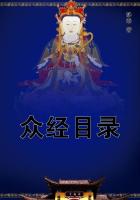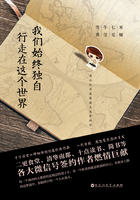At the end of the eighteenth century, when the partition of Poland had become an accomplished fact, the world qualified it at once as a crime. This strong condemnation proceeded, of course, from the West of Europe; the Powers of the Centre, Prussia and Austria, were not likely to admit that this spoliation fell into the category of acts morally reprehensible and carrying the taint of anti-social guilt. As to Russia, the third party to the crime, and the originator of the scheme, she had no national conscience at the time. The will of its rulers was always accepted by the people as the expression of an omnipotence derived directly from God. As an act of mere conquest the best excuse for the partition lay simply in the fact that it happened to be possible; there was the plunder and there was the opportunity to get hold of it. Catherine the Great looked upon this extension of her dominions with a cynical satisfaction. Her political argument that the destruction of Poland meant the repression of revolutionary ideas and the checking of the spread of Jacobinism in Europe was a characteristically impudent pretence. There may have been minds here and there amongst the Russians that perceived, or perhaps only felt, that by the annexation of the greater part of the Polish Republic, Russia approached nearer to the comity of civilised nations and ceased, at least territorially, to be an Asiatic Power.
It was only after the partition of Poland that Russia began to play a great part in Europe. To such statesmen as she had then that act of brigandage must have appeared inspired by great political wisdom. The King of Prussia, faithful to the ruling principle of his life, wished simply to aggrandise his dominions at a much smaller cost and at much less risk than he could have done in any other direction; for at that time Poland was perfectly defenceless from a material point of view, and more than ever, perhaps, inclined to put its faith in humanitarian illusions. Morally, the Republic was in a state of ferment and consequent weakness, which so often accompanies the period of social reform. The strength arrayed against her was just then overwhelming; I mean the comparatively honest (because open) strength of armed forces. But, probably from innate inclination towards treachery, Frederick of Prussia selected for himself the part of falsehood and deception.
Appearing on the scene in the character of a friend he entered deliberately into a treaty of alliance with the Republic, and then, before the ink was dry, tore it up in brazen defiance of the commonest decency, which must have been extremely gratifying to his natural tastes.
As to Austria, it shed diplomatic tears over the transaction. They cannot be called crocodile tears, insomuch that they were in a measure sincere. They arose from a vivid perception that Austria's allotted share of the spoil could never compensate her for the accession of strength and territory to the other two Powers.
Austria did not really want an extension of territory at the cost of Poland. She could not hope to improve her frontier in that way, and economically she had no need of Galicia, a province whose natural resources were undeveloped and whose salt mines did not arouse her cupidity because she had salt mines of her own. No doubt the democratic complexion of Polish institutions was very distasteful to the conservative monarchy; Austrian statesmen did see at the time that the real danger to the principle of autocracy was in the West, in France, and that all the forces of Central Europe would be needed for its suppression. But the movement towards a PARTAGE on the part of Russia and Prussia was too definite to be resisted, and Austria had to follow their lead in the destruction of a State which she would have preferred to preserve as a possible ally against Prussian and Russian ambitions.
It may be truly said that the destruction of Poland secured the safety of the French Revolution. For when in 1795 the crime was consummated, the Revolution had turned the corner and was in a state to defend itself against the forces of reaction.
In the second half of the eighteenth century there were two centres of liberal ideas on the continent of Europe: France and Poland.
On an impartial survey one may say without exaggeration that then France was relatively every bit as weak as Poland; even, perhaps, more so. But France's geographical position made her much less vulnerable. She had no powerful neighbours on her frontier; a decayed Spain in the south and a conglomeration of small German Principalities on the east were her happy lot. The only States which dreaded the contamination of the new principles and had enough power to combat it were Prussia, Austria, and Russia, and they had another centre of forbidden ideas to deal with in defenceless Poland, unprotected by nature, and offering an immediate satisfaction to their cupidity. They made their choice, and the untold sufferings of a nation which would not die was the price exacted by fate for the triumph of revolutionary ideals.
Thus even a crime may become a moral agent by the lapse of time and the course of history. Progress leaves its dead by the way, for progress is only a great adventure as its leaders and chiefs know very well in their hearts. It is a march into an undiscovered country; and in such an enterprise the victims do not count. As an emotional outlet for the oratory of ******* it was convenient enough to remember the Crime now and then: the Crime being the murder of a State and the carving of its body into three pieces.















